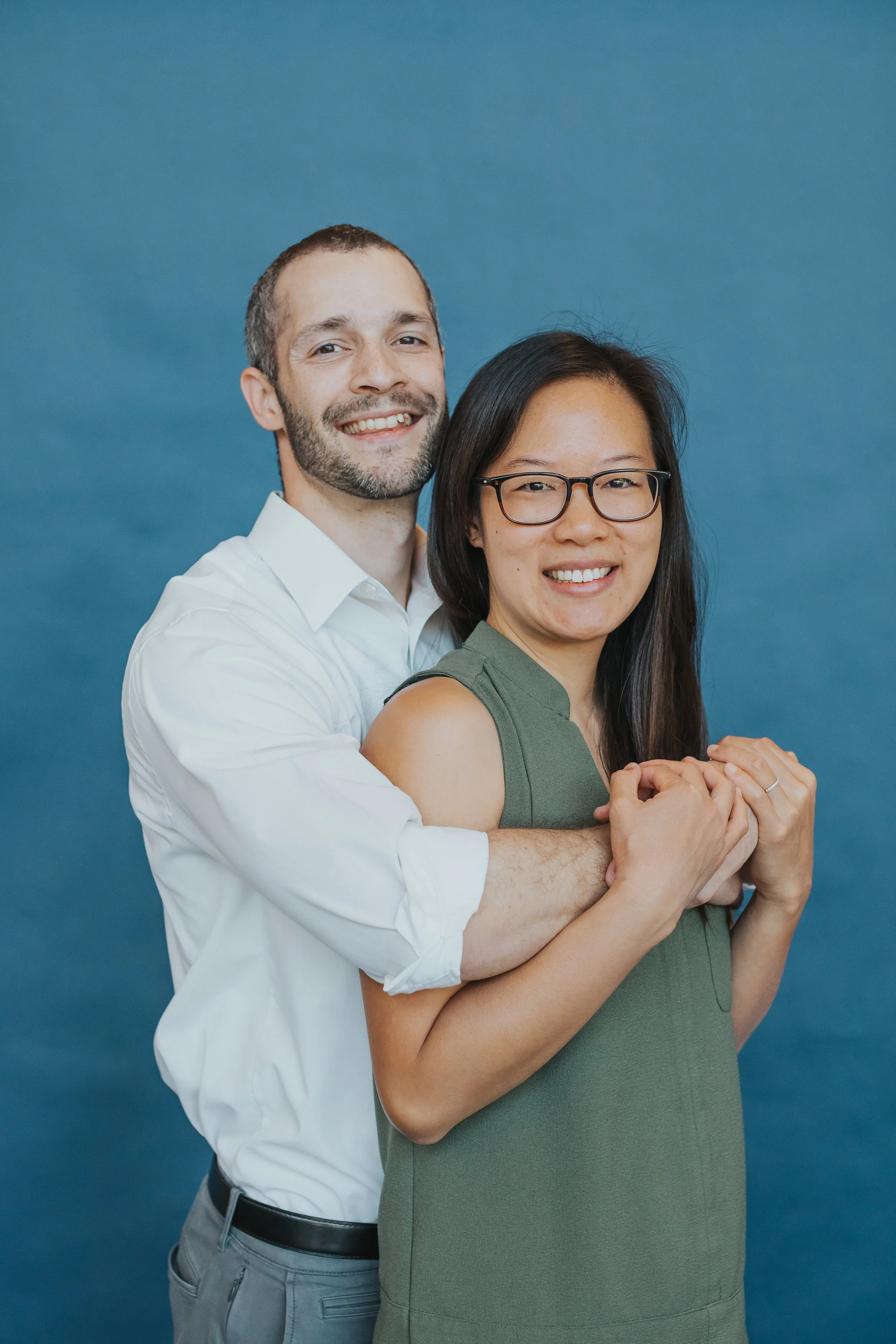The Story Project
Joyce and Gary’s Story.
“We were married in 2013, and immediately spent the next 9 years moving across 5 cities for Gary’s medical training. Looking back, we were unknowingly building the “American dream” we thought we should be building. We devoted ourselves to high-achieving careers, bought our first home, and expanded our family—all amidst frenetic busyness. We never questioned the journey, assuming that was just what modern life looked like. The toll of constant uprooting, coupled with the pandemic and new parenthood, eventually led us to a breaking point mentally, emotionally, physically, and spiritually. Hitting this “rock bottom” was a wakeup call. We realized we had become people that were habitually busy, constantly distracted, stressed, anxious, and depleted.
We were very glad when Gary completed his training and we moved to San Diego to settle down indefinitely. We began attending Trinity, and we were introduced to the idea of Spiritual Formation for the first time. We joined Trinity’s ABIDE Cohorts and began learning how to engage in spiritual practices as a means of abiding in Jesus and being formed in his likeness. Trinity’s emphasis on Spiritual Formation gave us a new awareness of how we are all being formed in this world, by what we choose to give our attention to. We realized that we had been blindly letting life “happen to us”, rather than living with thoughtful intention. We began to pay attention to the kind of people we were becoming, and the kind of life we were building.
We decided to adopt the spiritual practice of Sabbath as a family, because we knew we desperately needed to learn how to rest. At first, we didn't really know what our Sabbath would look like. We decided to not work on Sundays, not do chores or errands, and not fill up our agenda with too much activity - not as a means of righteous living and earning God’s favor, but in realization that God designed our souls to thrive, in part, by having dedicated rhythms of rest. We made conscious choices to put our regular routines on pause for a day, because we believed they would be life-giving—an antidote to our chronic, self-induced exhaustion.
At first, we were surprised to find that resting was much harder than having a full schedule. We had to constantly remind ourselves to slow down, and to resist the temptation to tackle our to do list. It wasn’t a linear progression towards mastering Sabbath, but rather, we had to allow Sabbath to master us. We learned that Sabbath was multidimensional - a day uniquely set apart not only to stop and rest, but also to foster worship, delight, and fun. We would notice whether Sunday felt like any other day, or if it felt different - and that served as a helpful guide to shape the day. Figuring out what worked for us was experimental. For example, we learned that we felt recharged in nature, but drained in commercial settings - so we made it a point to enjoy nature together on Sundays. We also learned that staying out later made us feel rushed with our preschooler’s bedtime routine, ending the day in impatience - so we started coming home early on Sundays. We found that our devices stole our attention away from each other and people around us, so we tried to take an extended break from the usual noise of media and notifications. We found that we especially enjoyed time in community, so we aimed to spend part of the day delighting in others’ company.
Sabbath is still a work in progress, but we have found it to be fruitful. Much like developing a gym habit, it started out clunky, but now feels essential. The first time we experienced a great Sabbath, we wondered how we ever lived without it. Far from a duty, Sabbath has been a gift, offering life and replenishment. It’s amazing how this one-day practice transforms the rest of our week. Sabbath has attuned us to how we invest our time, money, and attention - and whether we are moving towards a life of freedom or enslavement. It has taught us to make space for relationships, and to be human again, rather than productivity machines. It highlights our limitations, reminding us that we don’t need to manage our lives, but that we can trust in God’s lordship. Compared to the first 9 years of our marriage, our life looks very different today. We have more lasting peace, joy, life, and stillness. Through Sabbath and other means of grace in this season of life, we have seen God’s faithfulness. He has tended to our souls and enabled us to flourish in ways that we never could have imagined.”




